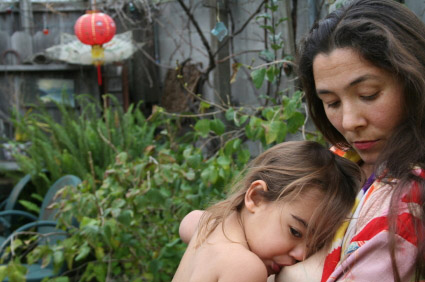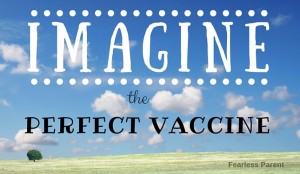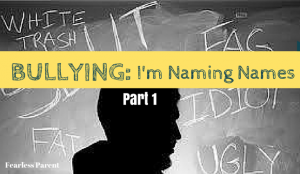Yesterday we were talking about how moms who breastfeed in public are terrorists but women who show off their breasts for men are sexy. The media and societal assault on breastfeeding in America show just how far removed we’ve become from understanding the fundamentals of who and what we are.
Maybe all our modern technology, conveniences and focus on intellectual pursuits (and celebrity gossip) make us wrongly believe that humans have somehow evolved beyond our biological origins.
But I want to bring the conversation back to this point – brace yourselves, people – we are actually mammals living on planet earth. We have mammary glands for one main reason: to nourish and sustain our young.
As hard as it is to combat the media messages telling us that breasts are just for show or allurement or pleasure, we need to keep educating those around us of this simple fact. One person’s discomfort or fascination with breasts does not mean we are not mammals.
mam•mal
Any of a class (Mammalia) of warm-blooded higher vertebrates (as placentals, marsupials, or monotremes) that nourish their young with milk secreted by mammary glands, have the skin usually more or less covered with hair, and include humans
A mammary gland is an organ in female mammals that produces milk to feed young offspring. Mammals get their name from the word “mammary.” In humans, the mammary glands are situated in the breasts.
Women should not be so bullied about breastfeeding that they have to sit in a smelly toilet stall, or stay home all the time, or resort to formula and bottle feeding without a medical reason, in order to nourish their children.
Yet a whopping fifty seven percent of Americans don’t approve of public breastfeeding, according to a recent survey. Have fifty seven percent of us forgotten or rejected the fact that women’s bodies perfectly designed to nourish and comfort our babies and toddlers?
“Because of the overwhelming evidence that exclusive breastfeeding gives newborns the best start in life and is the healthiest option for mothers, both national and international health organizations urge moms to breastfeed exclusively,” writes Jennifer Margulis, Ph.D., in her new book The Business of Baby.
In 2005, the American Academy of Pediatrics (AAP) issued a policy statement on breastfeeding recommending exclusive breastfeeding for the first six months of life, and continued breastfeeding “for at least a year or ‘as long as mutually desired by mother and child.'” The World Health Organization (WHO) recommends breastfeeding be continued to two years or beyond.
In order to breastfeed up until the recommended minimum of one year, however, breastfeeding needs to fit easily into our lives. We need to be able to be out in the world with our other children, friends and family and not feel awkward about breastfeeding.
The way forward means combating those media messages about breasts as alluring sexual objects and replacing them with images of breasts doing what they were intended to do: nourish our babies. We can all play a part in doing this by breastfeeding in public as often as we need to. The more that we do this, the more we will succeed in normalizing breastfeeding in our society.
If you need support, it’s out there:
Best for Babes has a wonderful education program to help moms beat the “Booby Traps” that prevent moms from reaching their breastfeeding goals;
La Leche League International has volunteer leaders in almost every city in America;
World Alliance for Breastfeeding Action helps moms by protecting, promoting and supporting breastfeeding rights worldwide.
Tune in tomorrow for the third installment in this milky American tale.
Cornelia Mazzan is heart-and-soul-centered on helping moms find the support they need with their pregnancies, their babies, and beyond.













Well done, Cornelia!!
So, that 57% unbelievably would include mothers, fathers, grandparents… people you would think would want their children/grandchildren/nieces/nephews/potential future doctors,lawyers, pilots, politicians, teachers to benefit from breast-feedings’ health benefits, including the recently-publicized information that breast-feeding influences intelligence…
Thanks, Lisa Rose!! You are so right… it is a strange contradiction. Hopefully it is shifting.